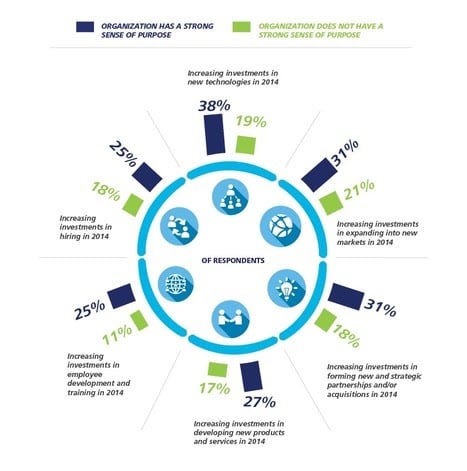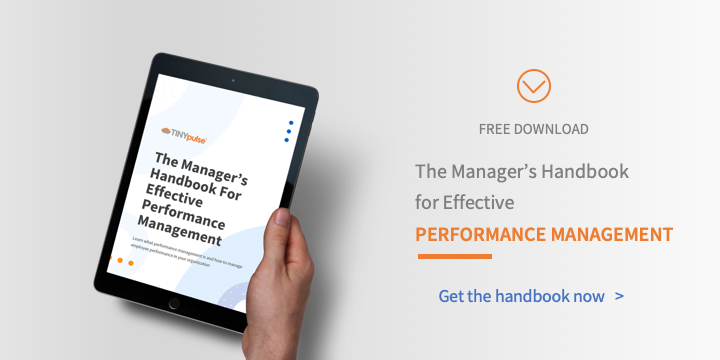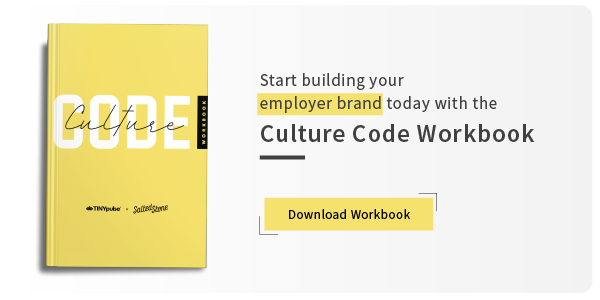50 Questions for Your Employee Survey You Need To Know

Strategic employee engagement surveys are a great way to improve employee experience and overall business performance.
Unfortunately, the average response rate to employee surveys is only 30% when to get an accurate assessment of the climate of your organization, the response rate should be closer to 70%.
The problem is, most companies send out employee surveys as part of their annual routine, to check a box, instead of using surveys as an opportunity to really listen and improve their employee's experience at work to boost employee engagement.
Based on the fact that you're reading this blog post, you’re probably looking to figure out how to get employees to communicate how you can help improve your organization.
Employee surveys can be a powerful listening tool when implemented correctly that can have a noticeable positive impact on all aspects of your business.
Two key components of successful employee surveys are asking the right questions and releasing surveys at the right frequency.
With so much information on how to create the best survey, it can feel very overwhelming! Where do you start?
This is a common question. And that’s exactly why I’m wrapping up 50 questions examples for your employee survey. No need to search through multiple blogs to find all the questions you need, they're right here. Plus, I’ll explain what I mean by “asking the RIGHT survey questions”.
Let’s jump right in:
- What You Should Consider Before Conducting a Survey
- How to Ask the Right Questions
- Employee Survey Questions About Personal Growth
- Employee Survey Questions About the Company
- Employee Survey Questions About Management Efficiency
- Employee Survey Questions About Work Environment
The Purpose of Employee Feedback Surveys

Employee feedback surveys are meant to improve your business productivity by gathering information about the way your employees think about your company’s processes, ethics, and mission.
Similar to customer research, but instead, it’s directed to your internal clients: your employees.
You need employees as much as employees need you. Having engaged employees is key to having engaged customers resulting in a thriving business.
Having an impactful employee survey is your first step to improving employee engagement. What should you expect by improving your employee surveys?
- 4.6x better performance when employees know that their voice is being heard.
- A boost in employee engagement, as workers will feel more integrated with the company and have a greater sense of responsibility.
- Improvements in internal communication and leadership, since—as a leader—you’ll surely find useful information about your team that you wouldn’t otherwise know.
- Giving your employees a sense of purpose in your company can improve performance and engagement.
- Having the opportunity to spot problems where you’re not expecting them before they become BIG problems.

Surveys are important for your business, not only for your bottom line but for retention too. What are you waiting for? Get ready to take action and keep reading!
What You Should Consider Before Conducting a Survey
Every company has different work ethics, procedures, and objectives. That’s why you should avoid copying and pasting surveys from other companies—no matter how similar they might seem.
READ NOW: HOW OFTEN SHOULD YOU RUN EMPLOYEE SURVEYS
That being said, a blind approach isn’t effective either; there are many factors you should consider before sending out an employee survey.
In order to conduct successful employee surveys, here’s a checklist to fill out before getting started:
- The goal of the survey. It is essential to determine the reason behind conducting a survey, whether you’re looking to spot weaknesses, problems, or opportunities for improvement within your organization. It is important to be clear on what result you're looking for.
- The indicators you’re trying to measure. You can measure your goals by setting the right indicators. Whether it is employee engagement, commitment, satisfaction, loyalty, motivation, or performance, choose to measure what you’re looking to achieve. This practice will let you make targeted improvements, and address issues you wouldn’t otherwise find.
READ MORE: 14 EMPLOYEE SURVEY QUESTIONS ABOUT MANAGEMENT EFFECTIVENESS
- A proven framework to follow. Establish where, when, and how you are going to implement the survey. Be clear about whether the survey is going to be offline or online, the focus group you’re targeting, and the date of the survey.
- Get appropriate survey tools. The best surveys require the best tools. Evaluate what kind of survey tool fits best with your business.
- Include an anonymity guarantee. The best way to ensure honest feedback from your employees is by making sure their answers stay anonymous. This is because employees don’t like the feeling of being constantly monitored or taking the risk of getting in some personal trouble with a coworker or boss.
- A proper date and frequency for such surveys. Annual surveys are long gone. Now you need to set the right survey frequency in order to ensure employee engagement (TL;DR: do it more often and make them less bulky.)
Of course, this is just the tip of the iceberg. I invite you to learn more about employee engagement surveys so you can make the most informed decisions about surveys (spoiler: you’ll find more example questions).
How to Ask The Right Questions in Your Employee Survey
Tony Robbins says that “successful people ask better questions, and as a result, they get better answers.”
And he’s not wrong. If you learn to ask better questions in your surveys, you’ll surely get better answers from your employees.
But how do you know which questions are the right ones?
Every company has a different set of “right questions”—particularly if your workplace is more unique than a typical corporate environment, if you’re working under irregular conditions, or even if you’ve been enacting a lot of changes recently.
READ MORE: THE ULTIMATE GUIDE TO EMPLOYEE ENGAGEMENT SURVEYS
Here are some tips to write better-than-good questions you can use to get more actionable answers:
- Keep it short. The easier it is for your employees to understand and answer the better.
- Don’t leave an implied answer. If your questions go something like “what do you think about our awesome CMO?” you’re already implying that the answer should be positive which could lead to inaccurate answers.
- Don’t kill two birds with one stone. Avoid addressing two subjects in the same question. Doing so could confuse the reader, forcing them to give inaccurate answers.
- Ask specific questions that are easy to answer. Specific answers will help you make more informed decisions. The tricky part is making it specific and easy. A helpful trick is to try to answer your own questions and see how simple it is for you to actually write an answer.
- Speak to an employee engagement specialist and learn more about survey question strategies and how to get the best quality feedback.
Employee Survey Questions You Should Include in Your Next Survey
What follows is a list of 50 great questions divided into four different categories. Keep reading to get a decent understanding of the kinds of questions your business may want to ask.
Employee Survey Questions About Personal Growth
These questions are aimed at helping you find out what your employees really want, and what they aspire for. Ask them so you can easily tell if you’re actually helping them grow professionally—or becoming an obstacle toward their goals instead.
1. What are your career goals? Please share three of them and explain why they’re important in your life.
Do your employees have big goals? Or are they lost in life? Find out how you can help them fulfill their professional lives.
2. In the past two months, have you interviewed for another job? (Yes/No) If you did, please explain why.
This will let you know if your employee retention is declining. And believe me, you don’t want retention to go down. Listen to what your employees have to say about their work environment and improve the aspects that are making them leave.
3. Have you accomplished any career goals in the last six months? If so, please write them down.
Find out whether your employees are going the extra mile and not receiving any recognition for their actions. This question will let you know if they’re frustrated with their careers. If they are, give them some recognition and make them feel happier in the workplace.
4. Would you like to receive any training from us? If yes, please name at least three areas and explain why they’re important for your career.
Employees want to stay at a company that nurtures their growth. So find out what kind of training your workers want and provide it. You need them to become better at their work, right?
READ MORE: 22 CHARACTERISTICS OF HIGH-POTENTIAL EMPLOYEES
5. On a scale of 1 to 10, how challenged are you on a daily basis at work?
Remember that if workers get bored, you may lose them. And people get bored with redundant routines. So pay attention to their answers and find out if you’re offering your employees sufficient variety in their workload.
6. What's your most recent accomplishment at work?
If an employee has nothing good to say here, you should be worried because they’re most likely not the happiest camper at work. This can be fixed by challenging them on a frequent basis (but be careful not to burn them out!).
7. On a scale of 1 to 10, how would you rate your work-life balance? And what do you think are the three most important contributing factors?
Work-life balance has a huge impact on employee retention. And those who feel burnout will not stick around for very long. So try to listen to what they say about this in order to improve work-life balance.
8. What motivates you to go above and beyond at work? Please name three motivation triggers that work for you.
Find out what really drives your employees to put in 110% of their effort so you can find out how to keep them motivated. If you find your team with low motivation, this question will give you some ideas to bring their energy back.
EXTRINSIC VS. INTRINSIC MOTIVATIONS: HOW TO INSPIRE YOUR REMOTE EMPLOYEES
9. Do you think our organization supports you in your professional development? Why?
According to our employee retention study, employees are 3x times more likely to hunt for another job if they don’t feel supported by their current employer. If you’re not supporting your employees enough, listen to them and try to come up with training programs to improve their skills and turn them into high-achievers.
10. Do you feel like you're progressing professionally at this organization? (Yes/No) Please address three aspects that are moving you forward or holding you back.
Employees want to work on tasks that will help them progress in their careers. Make sure you’re not forcing people to go down a path they don’t want to follow. Consider listening to their career aspirations before trying to move someone into a different role they might not want.
Speak to an employee engagement specialist and learn how you can run successful employee surveys.
Employee Questions About the Company
Here, the questions are totally tailored to measure how engaged your employees are with your company—and how identified they feel with internal ethics, your mission statement, and their loyalty.
11. What was the number one reason you joined our organization? Follow it up with two extra reasons or more.
Find out what’s drawing people to your organization and continue to highlight that during the recruitment process. You need to be aware of your organization’s strengths—and weaknesses.
12. How likely would you leave this organization if another company offered you a 5% raise? Give a percentage.
Although not a huge amount from a financial perspective, if an employee is unhappy at their job or they feel unfairly compensated, they’ll be more than happy to leave their job for a small raise. If the percentage is too high, it means your salaries are not competitive enough and that your employee engagement is going down. So keep an eye on employee engagement and make sure you’re paying your employees what they deserve.
13. If you were to leave this organization tomorrow, what would the reason(s) be? Please explain in detail.
Answers can range from “changing careers” to “I hate you.” Find out why your employees would leave your organization and try to fill those gaps. But at the same time, remember that you can’t please everybody, so you might not want to act on every idea.
14. Name what you think our company’s three biggest strengths are that you think we should be focusing on more.
Is your organization doing something really well? If so, your employees know what that is. Ask them in detail so you can find out your strengths and invest more resources in them.
15. Do you believe our organization has a higher purpose than money? If so, what do you think is our purpose?
Employees, especially millennials, want to work for a company that makes a positive impact on the world. So make sure your mission, vision, and core values are well-aligned and communicated to your employees so they can relate to them.
16. On a scale of 1 to 10, how transparent are we when it comes to the company's performance?
Transparency plays a vital role in keeping employees happy. So, find out a way to communicate better with your employees and make them feel like they’re in an honest environment.
17. Without looking anywhere else, please recite our organizational values.
Organizational values are a company’s roadmap, and employees need to live by them in order to keep the culture aligned. Having strong brand values will help you achieve that optimal level of engagement with your employees. If your employees can’t answer this question correctly, then you need to take action quickly.
18. Name one practice (game, routine, process…) you'd like to see us continue doing here (you’re welcome to name more).
Is there something working great in the company? Find out how to replicate that and work constantly to keep your employees engaged.
19. If you had to describe your company as an animal, what animal would it be and why?
Domineering lion, sly fox, or a sheep? Animals have certain characteristics that can either be predatory or nurturing. Animals, of course, can also be prey. These answers give you great insight into how your employees perceive your company.
20. Please paint a picture of how our company will be in five years in terms of growth, efficiency, and brand recognition.
There’s no point working for a company that will eventually die. Discover if your employees see only success or failure in your organization’s future—and succeed!
21. Are we a better organization now than we were six months ago? If we are, address at least three changes that had a positive impact on this.
If your organization went through a lot of changes recently, this question will help you find out if those changes went well or flopped. For example, if you went through a rebranding campaign, you need to know how your employees are reacting to changes.
22. Are you proud to work for our organization? (Yes/No) Why?
Employees shouldn’t be ashamed to work for your organization. If they are, figure out why and fix it. Always try to position your company as a prestigious place to work—not as a joke.
23. What potential hazards do you think can put us out of business? Name at least two of them.
Find out if there are certain factors that are driving your organization toward failure. This is critical to find out threats that only your employees can see.
24. If your organization had a theme song, what would it be and why?
People relate music to certain emotions. So this question can elicit happy, frustrating, or sad melodies. Make sure it aligns with your brand essence.
Employee Questions About Management Efficiency

It’s important to implement constant improvements in your business.
The following questions will help you get some feedback regarding the efficiency of your managing process (or even your whole production process) from your employee’s point of view.
25. Has a manager given you any recognition in the past month? How frequently are they doing it?
People want to be appreciated at work, and two weeks without recognition is enough to make an employee feel unvalued; this question will let you know whether that’s happening. So, find the right tools to improve employee recognition within your organization, and make sure to sing your team’s praises on a regular basis.
26. On a scale of 1 to 10, how good is your direct supervisor at recognizing your contributions at work?Find out if a leader isn’t pulling their weight with recognition. This is especially important for managers since it’s their job to keep your team motivated.
27. Does your management team set clear goals?
This question will tell if managers are providing proper direction for your company. And if they’re not, people won’t find much of a purpose with their work. This could lead them to feel that their work isn’t making much of a difference, which could cause employees to feel unhappy and become disengaged.
28. On a scale of 1 to 10, how well does your supervisor support your developmental goals? Explain why.
Again, professional growth is a retention strategy. Find out if your managers need to invest more effort in supporting your employees with their professional goals so they can stay with you.
29. On a scale of 1 to 10, how comfortable do you feel providing upward feedback to your supervisor?
It is common to see arrogant leaders fail to embrace new ideas. Make sure the leaders in your organization are approachable and receptive to feedback. This question will let you know where things stand.
30. On a scale of 1 to 10, how cohesive is the management team?
There will always be disagreements. But the management team needs to be cohesive for the company to succeed. If your employees don’t perceive management as being as efficient as they should be, they won’t take them seriously and may even lose respect for your company.
31. If they were making a movie about your organization, which actor or actress should play your CEO and why?
Find out if your employees think the CEO would be played by Al Pacino, Keanu Reeves, or Angelina Jolie. Don’t take it too personally. The answers are more superficial than you might think.
FREE DOWNLOAD: THE BEGINNER'S GUIDE TO GREAT LEADERSHIP
32. On a scale of 1 to 10, how respected do you feel by your direct supervisor?
Nothing will push an employee out the door quicker than a manager who is condescending. If you want to improve employee retention, keep an eye on the supervisor’s attitude toward employees.
33. Have you seen any positive changes since we started collecting employee feedback? Name three of the most positive changes (feel free to add more).
Doing nothing about feedback is worse than not asking for it at all. Remember that these surveys are meant to give your company a clear direction to make positive changes. If you’re in a “trial” state, this question will give you an idea if things are working or not.
34. On a scale of 1 to 10, how transparent is the management team?
Find out if your leaders are doing a good job in letting their employees know what’s going on in the company. If transparent communication is falling apart, then you need to be pushier with your managers so they communicate better with their team.
35. If your direct supervisor was an animal, what would he or she be?
Maybe they’d be a dangerous shark, a gentle rabbit, or a charismatic labrador. Again, don’t take this too personally. This question should be a fun one.
36. Name three processes that we can improve here and explain how (feel free to add more).
Onboarding, performance reviews, management. Look into what’s not working around the company. Listen to what your employees are saying about these processes and look for opportunities for improvements.
Employee Questions About Work Environment
Teamwork is essential for productivity, there’s no doubt about it.
When you ask the right questions, you’ll be able to spot hidden issues within your team that you wouldn’t otherwise find. That way, you’ll be able to solve them before they get intense.
37. On a scale of 1 to 10, how much fun do you get in your work environment? And what activities do you have fun doing?
Both the work environment and assigned tasks play a huge role here. A dull work environment can make time really drag. But a fun environment (i.e., having great and supportive colleagues) can really motivate people to go the extra mile. So with this question, you’ll get an idea of what keeps your employees interested in their work.
38. Name three perks you liked best about your previous employer. Explain why you liked them.
If there was a process that worked efficiently at another company, who’s to say that it won’t work at your organization?
39. Name three things you don’t like (that drive you crazy) about your work environment (feel free to add more).
As a leader, you may not be aware of the big or small obstacles that are hindering an employee’s productivity. Spotting those small problems and fixing them can improve employee satisfaction and happiness.
40. On a scale of 1 to 10, how connected do you feel with your coworkers?
Colleagues are a vital support system at the workplace, so make sure each employee is feeling like they are a part of the team. If they feel excluded from the rest of their coworkers, you’ll find out why with this question.
DOWNLOAD YOUR FREE E-BOOK: THE SURPRISING EFFECTS OF EMPLOYEE RECOGNITION AND APPRECIATION
41. Name three things you like most about working here (feel free to add more).
People, nature of work, fun perks. This question highlights the great aspects of your organization that you should emphasize and invest in.
42. On a scale of 1 to 10, how much respect do your coworkers show with each other? Explain your score.
There’s nothing that will make an employee feel more devalued than being disrespected by their colleagues. If you spot a problem with this question, address their bosses so they can find a solution.
43. On a scale of 1 to 10, rate the authenticity and honesty behind our work recognition. Explain your score
Many organizations have recognition programs. But most of them feel fake and forced to employees. Being transparent and honest with your recognition program is a must in order to make it work. With this question, you can spot problems behind employee recognition and take some action.
44. Describe our culture in one word. Add an explanation.
Good words, bad words—you’ll be surprised at what your employees have to say about the culture. And culture can affect your work environment drastically. So look forward to developing a healthy work culture.
45. On a scale of 1 to 10, how engaging are our team-building activities?
Let’s face it: Most team-building activities are on the cheesy side, so make sure the ones you host are actually working for your employees. If not, you can look for some activities ideas and try different things until you get something that works for you.
46. Would you refer someone to work here? Why?
If your employees are happy with their jobs and the culture, they are much likelier to refer folks in their network. If not, then you know you need to make changes. It’s that simple.
47. On a scale of 1 to 10, rate your onboarding experience. Explain your score.
Onboarding helps you set up new hires for success. If you’re not laying down the right foundation during the first few days, you’ll find out the hard way. This question will give you some feedback on how you can improve your onboarding process.
48. How many friends do you have at work?
Having friends at work can have a great impact on employees and on the organization. Not only does it increase employee retention, but it also improves company culture. This question will measure how friendly your team is and how open they are to building work relationships.
49. On a scale of 1 to 10, how open are your peers to receiving different opinions from their own?
It’s one thing to encourage different opinions. But it’s quite another to accept them and have honest discussions about them. It’s essential to have peers who are open-minded and can accept different opinions. This question will measure the efficiency of your team in brainstorming ideas and getting into agreements.
50. Do you have the resources you need to be successful?
You can’t help your employees reach their full potential if you aren’t giving them the tools they need to succeed.
Toss Out The Traditional Annual Survey
And start learning about pulse surveys. That way, you’ll get the most out of these questions, and see positive results from employee feedback.
Now that you’ve learned how to write the right survey questions, it’s time to go to the next level.
But learning is just the first step. You still need to take action and start applying what you’ve learned.
Share this
You May Also Like
These Related Stories

10 Employee Engagement Survey Questions Science Says You Can’t Live Without

How Often Should You Run Employee Surveys?






.png?width=534&height=632&name=blog%20ad%20(1).png)
